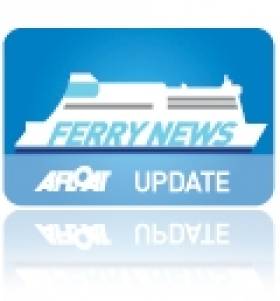Displaying items by tag: Irish Sea seasonal ferry services
Seasonal Start for Three In A Row
#FERRY NEWS – By this weekend three seasonal-only operated routes from the island of Ireland will have resumed service since the recent change of the clocks marking the start of summertime, writes Jehan Ashmore.
Sailings started today on Stena Line's Dun Laoghaire-Holyhead (120 minutes) fast-craft HSS Stena Explorer operated service. The central corridor route closed last September due to cost-saving measures as previously reported. For further details on sailing schedule click HERE.
The reopening of the Welsh route follows yesterday's launch of P&O Ferries fast-craft sailings to Scotland between Larne-Troon (2 hours) served by the 92m Express. She also runs additional sailings on the year-round Larne-Cairnryan route served by a pair of conventional ferry sisters. To read more information on both sailing route schedules click HERE.
The remaining route to re-open is Brittany Ferries Cork-Roscoff (14 hours) service operated by the 2,400 passenger 'flagship' Pont-Aven, which features an indoor swimming pool. Her first sailing for this year is tonight's sailing from the Breton port.
The corresponding Irish sailing departs tomorrow afternoon and the inaugural round trip is due to be completed with an arrival in France on Sunday morning. For sailing times click HERE.
























































